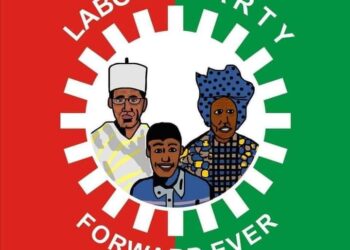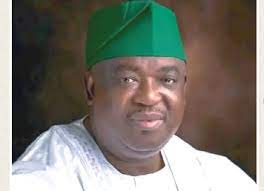The nation recently woke up to a row over the introduction of some fresh policies by the Central Bank of Nigeria (CBN); the redesigning of some of the nation’s currency notes and a set of new cash withdrawal limits from banks deposits, prompting the House of Representatives to seek explanations from the CBN. JOSHUA EGBODO reviews the drama therefrom
The genesis
On October 26, 2022, the Central Bank Governor, Godwin Emefiele during a media conference announced the apex bank’s decision to redesign some of the currency notes in circulation, stating that the new design and issues will be effective from mid-December. According to Emefiele, the affected notes include N200, N500 and N1000.
He advised the people to for that purpose, take the notes in their possession to banks in order to to enable them withdraw the new bank notes when their circulation begins.
In trying to justify the move, Emefiele explained that it was due to persisting concerns with the management of current series of banknotes, and currency in circulation, especially as it affects the volume of money outside the banks and other ancillary challenges.
According to him, one of these challenges primarily include: significant hoarding of banknotes by members of the public, with statistics showing that over 80 percent of currency in circulation are outside the vaults of money deposit banks.
Emefiele claimed that at the end of September 2022, available data to the apex bank indicated that N2.73 trillion out of the N3.23 trillion currency in circulation, was outside the vaults of the banks.
“Evidently, currency in circulation has more than doubled since 2015; rising from N1.46 trillion in December 2015 to N3.23 trillion in September 2022. This is a worrisome trend that cannot be allowed to continue”, he stated.
He also pointed out the issue of counterfeiting, and further cited the security challenges facing the nation as another motivator for the move.
“Also, in view of the prevailing level of security situation in the country, the CBN is convinced that the incidents of terrorism and kidnapping would be minimised as access to the large volume of money outside the banking system used as source of funds for ransom payments will begin to dry up,” Emefiele said.
Then the cash withdrawal limits
While the dust raised by the planned redesigning of some currency denominations was yet to settle, the CBN was to follow up with introduction of cash withdrawals limits, with stringent applicable charges in the event of exceeding the fixed ceilings. The apex bank in the policy as initially introduced fixed a cash withdrawal limit of N100,000 weekly,, and N20,000 daily for individuals and N500,000 daily maximum for corporate entities.
Reps kick
Beside the reaction of many Ngerians, and their representatives at the Senate, the House of Representatives also wanted to know the import of the new policies. At its plenary on December 8, 2022, the House passed a resolution, inviting the CBN Governor to appear before it and clarify some of the knotty issues. He was also urged to halt implementation of the cash withdrawal limits until the expected briefing. Emefiele was to explain to the House, the impact and significance of the new policy.
Raising concerns over the announced policy, Chairman of the House Committee on Power, Hon. Aliyu Magaji Da’u in a motion which resulted in the resolution said “My heart bleeds for the people who voted us into power, we seem to come to Abuja and forget about them and this is my opinion”, recalling how in about a month earlier, “Nigerians woke up to hear that there will be new currency notes”.
Also speaking, Chairman of the Committee on Tertiary Education,
Hon. Aminu Suleman, said leaving the policy might be “an exit board for many of us if we allow this radical decision to succeed and therefore, my voice must be heard on this. There are several government Chief Executives in this country that have outlived the essence of their positions because I cannot simply understand how we can wake up one day and introduce this draconian approach to businesses…”.
Minority Leader of the House, Hon. Ndudi Elumelu who offered a contrary opinion said part of the problems in enforcing counter kidnapping measures will be addressed by the new measures.
Another twist was added by Hon. Mark Gbillah, who in citing section 8(4,5) of the CBN Act pointed out that the apex bank’s Governor is required to consult with the parliament over certain policies, saying the procedure was breached, which he said included the requirement that the CBN briefs the national parliament at least twice in every year on its operations.
When asked by Speaker Femi Gbajabiamila to state whether the House Committee on Banking and Currency was briefed on the recent development, a member of the panel, Hon. Mela Danzariya said for his over three years stay and being a member of the committee, “I have never seen the CBN Governor giving us any report”.
Emefiele was through the resolution, expected to face the House on Thursday, December 15.
Repeated failure to appear
On the expected date, Governor of the CBN was not available to brief the House. He sent a letter by proxy and through Clerk of the House that he was unavoidably absent, being in the United States of America with President Muhammadu Buhari for the US-Africa leaders meeting. For that reason, Gbajabiamila appealed to his colleagues that a new date is offered him, which was to be Tuesday December 20.
On the same date again, Emefiele was yet not available. Gabajabiamila rather read another letter from the apex bank, explaining that he was still outside the country. I think it’s important I communicate back to the House, a couple of days ago, the House resolved through a resolution, and compliance with the Central Bank and the Constitution of the Federal Republic of Nigeria, to invite the Central Bank Governor to brief us last Thursday on the new policy, both the redesigning of the naira and the new cash policy.
“The Central Bank Governor was supposed to come last Thursday but he wrote to the House, stating that he was unavoidably absent. He was in the United States on official visit with Mr President and the House wrote back to give him another date since he was on official assignment with Mr President, and that another date is today, Tuesday 10am, and just yesterday (Monday), I received a letter from the Central Bank, or rather the Clerk received the letter which I have with me, it wasn’t addressed to me. It was addressed to the clerk since he was the one that wrote the invitation for the briefing”, the Speaker told his colleagues”
The letter as read out by the Speaker stated in part that “Regrettably, the Governor is unavailable to brief the House at this time because he had other pre-scheduled engagements he is attending to in abroad. Accordingly, he has respectfully requested that we convey his inability to honour the rescheduled invitation”, adding that he would contact the House when back to the country.
More anger
Reacting to the development, Hon. Yusuf Gagdi from Plateau State, said “First thing first, I am not to comment about the policy, I need to comment on your powers and my powers, and the need to respect the Nigerian people. The crafters of the Nigerian Constitution did not make error to create the House of Representatives, to call public office holders to account for their activities on behalf of Nigerians.
“I think it is quite important to let such public office holders know that it it is not Right Honourable Femi Gbajabiamila that is summoning the CBN Governor, or Hon. Yusuf Gagdi or the Deputy Speaker or any other member. It is the collective will of the Nigerian people that is inviting the CBN Governor to come and explain some of the policies that Nigerians need explanations.
“For me, I am not against any policy, but I am against disrespect to you and the Nigerian people, to the House. What I mean, the Speaker is a symbol of Nigerian people and the symbol of this House, so if you disrespect Mr Speaker, you are disrespecting the Nigerian people, you are disrespecting the House.
In ruling, Gbajabiamila said there was no point debating the matter further. “Let us agree on a new resolution, and my suggestion would be that we invite the CBN Governor. So in my humble opinion, I think, because this House will also more than likely close on Thursday for the Christmas break, we should resolve to invite the CBN Governor to brief this House on Thursday (December 22) morning, and if for any reason it is verified that he is unavoidably out of the country on Thursday, that he ask his Deputy Governor, or anyone who is well equipped to fully brief this House so that we do not carry this thing until next year”, he stated.
Concerns were yet expressed on what if he yet failed.
Fresh excuse
Members of the House resumed plenary on Wednesday, just less than 24 hours to Emefile’s expected appearance, to a fresh note that the apex bank’s Governor was reportedly sick and attending to his health abroad. This was announced in a letter read at plenary by Speaker Femi Gbajabiamila.
“Regrettably, the Governor is out of the country on official engagement as well as attending to some health challenges. He is therefore unavailable to attend the briefing”, the letter read.
The Speaker said at this stage, the House had to rise above sentiments and accept the appearance of the team mandated to appear before it, adding that considering the ill health of Emefiele, it was not fair to continue to insist on his physical appearance.
The House finally resolved that the Deputy Governor, Finance System Stability, Aisha Ahmed and team of other deputies would brief the House on the controversial policies.
The briefing
The Deputy Governor told the House that the fresh policy pronouncement on December 5, which generated the current debate “was a continuation of the cashless policy that we started 10 years ago and it was in recognition of the positive changes that have happened in the financial and payment system since the cashless policy was first launched”, citing one of such to be “a wide proliferation of financial access points”.
According to her, upward reviews of the initial withdrawal limits for both individuals and corporate entities have been done in response to feedbacks the apex bank got.. “We have since reviewed the limit significantly from N100,000 that we had per week to N500,000 per week for individuals; from N500,000 per week to N5 million per week for corporate bodies”, she stressed, and added that charges do not apply to withdrawals within the set limits.
After listening to the briefing, and several questions from lawmakers answered, Speaker Gbajabiamila however blamed the apex bank’s management, for its failure to comply with its establishment Act, part of which require that it has a minimum of two time engagement with the parliament in every year, citing the UK and the USA as great economies where such monetary policies allow enough time for full implementation to take place.
In his view, if the bank had met with the parliament and certain questions addressed before the roll out, members would have helped in educating their constituents, which would have prevented the uproar.
He also assured that all the details received from the briefing would be deliberated upon by members, and the necessary action taken, but how soon remained a question for time to address.




